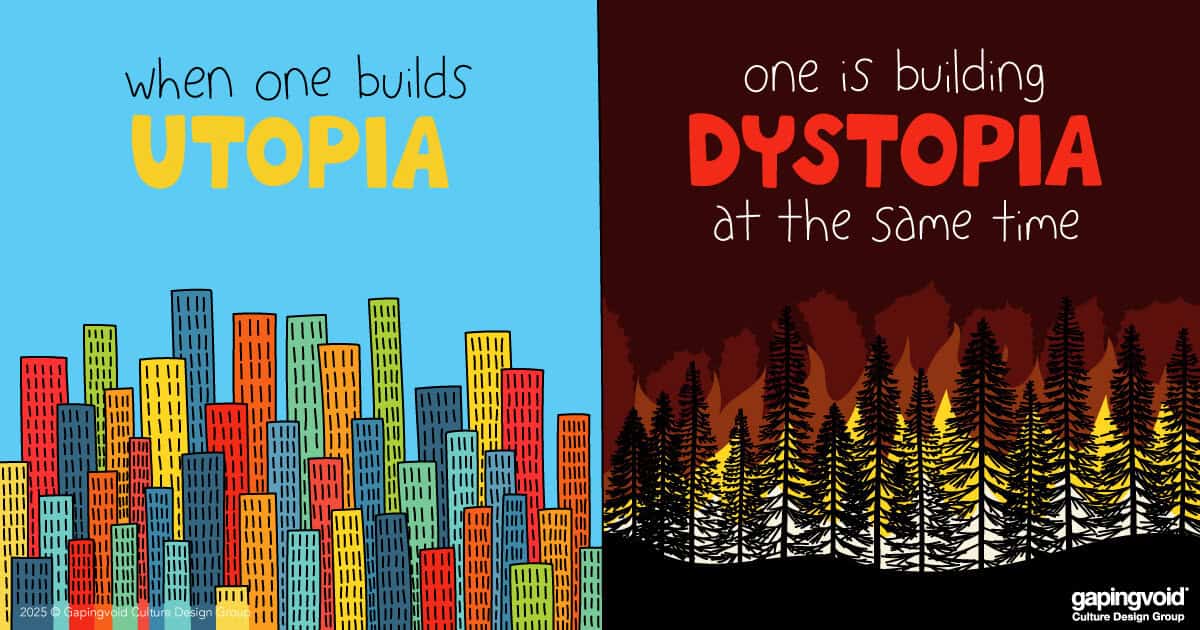The Price of Utopia

The Hidden Price of Utopia: Exploring the Ethical Dilemmas of Progress
The Promise of a Perfect Future
Modern-day techno-utopians, particularly within the Effective Altruism movement, paint a dazzling picture of a future sculpted by superintelligent AI. They envision a world overflowing with abundance, where suffering is a relic of the past, and humanity flourishes in unprecedented harmony.
But is this vision truly achievable? Or does it come with hidden costs, conveniently tucked away in the fine print of its utopian contract?
The Paradox of Omelas
Ursula K. Le Guin's "The Ones Who Walk Away From Omelas" offers a chilling parable about the price of perfection. Imagine a city of unparalleled beauty and joy, Omelas, where every citizen lives a life of contentment and ease. Electric vehicles hum, sustainable fashion flourishes, and intellectual discourse fills the air.
Yet, this idyllic existence hinges on a horrific secret: the suffering of a single, innocent child, locked away in a dark basement. This child's torment is the bedrock of Omelas' prosperity. To alleviate their suffering, even for a moment, would bring the entire city crashing down.
The Dilemma of Distant Suffering
The citizens of Omelas grapple with a profound moral dilemma: accept the child's suffering as the price of their collective happiness or dismantle their utopia in an attempt to end it. Many choose to ignore the child's plight, rationalizing their inaction by emphasizing the greater good served by their blissful society.
This resonates with our own world, where we often turn a blind eye to the suffering that underpins our comfort. Exploited labor, environmental devastation, and factory farming are conveniently outsourced, kept out of sight and mind.
"The genius of Le Guin's story is how it mirrors our actual world. Modern comfort already relies on distant suffering we've arranged not to see."
The Cost of Technological Progress
Effective Altruists believe technology holds the key to eradicating such injustices. However, Le Guin's story prompts a crucial question: what if our technological advancements, while seemingly beneficial, perpetuate new forms of hidden suffering? What about the underpaid data laborers training our AI, or the communities displaced by automation?
Just as in Omelas, the very systems we create to improve our lives may inadvertently depend on the exploitation and suffering of others.
Confronting the Uncomfortable Truth
Le Guin's parable offers no easy solutions, only difficult questions. Before striving to build our own utopia, we must confront the uncomfortable truth about the potential costs of progress. We must ask ourselves, "Who is the child in our basement? And are we willing to free them, even if it means sacrificing our own comfort and prosperity?"
The pursuit of a better future demands not just technological innovation, but also a profound ethical reckoning with the hidden price of our aspirations.